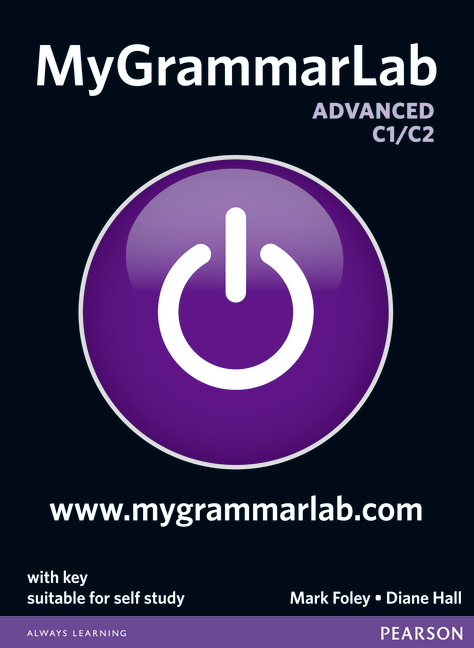How to learn English grammar effectively
Oleksandra Kulish
Book expert
English grammar seems daunting to many people, but in fact there is nothing complicated about it. It is based on certain rules, which you can learn to avoid mistakes when using words and phrases. If your goal is to learn English in order to use it in everyday life, grammar is essential.
How can I improve my English grammar?
Use the following tips to improve your English grammar:
- Choose an effective grammar book to learn the rules and do practice exercises. You can also use English courses or popular online platforms like Duolingo or Khan Academy.
- Read books, articles or blogs to see how grammar rules are used in practice. Start with adapted books, gradually increasing in difficulty.
- Write more often in English, for example, start keeping a diary. This will help you develop your writing skills, use tenses, articles, pronouns, and correct sentence structure. You can check the correctness of your writing when learning the language on your own online, for example, with Grammarly.
- Try to do more exercises and assignments to learn grammar. Visit web resources where you can take grammar tests.
- Watch instructional videos, films, listen to audiobooks - they will help you find practical application of grammar rules.
Also, don't miss the opportunity to have a live conversation with a tutor, a teacher on a course, a native speaker. This will help you to identify mistakes and eliminate them effectively by paying more attention to them.

How to understand when and why to use grammatical rules
Understanding why to use grammar rules helps you to express yourself more clearly, speak and write correctly. For example, in business correspondence you need to follow the rules of grammar clearly, but at the same time in an informal meeting you are allowed more freedom.
If you use tenses incorrectly, there can be confusion and misunderstanding about when an event happened - in the past, in the present tense, or will happen in the future. The same applies to articles, modal verbs, prepositions and pronouns, sentence structure and other aspects of forming a competent speech or written text. The more you practise the language and pay attention to grammatical structures, the easier it will be to know when to apply the rules.
Where do I start learning English grammar?
It is better to start studying grammar with parts of speech and learn to distinguish between verbs, nouns, adjectives, conjunctions, prepositions, etc. You also need to understand the role of each part of speech in forming a sentence. Once you have learnt the parts of speech, start learning the rules relating to each of them. It is better to take one part of speech, for example, a noun, and study all the rules about it, and then move on to verbs.
The next stage is to start studying sentence structure and mastering tenses. These two categories are inseparable, so you can only learn them together.
The best ways to learn grammar on your own
If you are learning English on your own, first of all get a good grammar book and use the following:
- Set yourself goals, for example, plan lessons for the coming week with specific objectives. Try to keep the lesson to no more than 30 minutes so that your brain will remember the information more efficiently. Choose a small amount of material to study during the lesson and repeat it mentally and aloud during the allotted time.
- Avoid exorbitant tasks or too much information to memorise to avoid the opposite effect.
- Learn examples of rule usage, come up with your own variations by analogy to better understand the context of practical usage.
- Write texts, double-check them online on specialised websites to detect errors. If no flaws are found, move on to the following rules.
- Test your knowledge, do exercises and solve problems. This also helps you to find gaps in your knowledge and correct them.
- Stay motivated in your language learning to make progress. Only self-discipline and regular lessons will help you achieve your goal.
Lastly, reward yourself for positive results. For example, go to the cinema or allow yourself a short break.
Maintaining progress in learning English grammar
What you need to do to maintain progress in learning grammar on your own:
- Regular interval repetition of the learnt material promotes memorisation of grammatical rules.
- Putting grammar rules into practice in correspondence or live communication helps to identify gaps in knowledge and correct them.
- Periodically test your knowledge by taking tests and completing assignments to assess your level and identify weaknesses.
- Read books, listen to audio recordings and watch videos to build an understanding of how the rules are used in reality.
- Start your own blog in English to hone proper sentence formation, use of tenses and develop your writing skills.
Finally, talk to yourself using English grammatical structures. This way you will not only learn grammar but also improve your pronunciation.

The role of motivation in learning English grammar
Motivation is a powerful driving force that will one day lead you to your goal. This does not only apply to learning English. The key is to keep that motivation at the right level to make progress.
How motivation affects the learning of English grammar:
- promotes the habit of constant exercise;
- helps you focus on the goal;
- develops an interest in language;
- helps you overcome learning difficulties;
- promotes self-organisation and a more responsible approach to learning.

Motivation fuels interest in language learning and helps you move forward. It makes the process more fun, and failure is seen as an unavoidable side effect that can be easily overcome with intensive study.
Other news

177
0

Oleksandra Kulish
Book expert
20 February 2026

170
0

Oleksandra Kulish
Book expert
19 February 2026

466
0

Oleksandra Kulish
Book expert
30 January 2026














